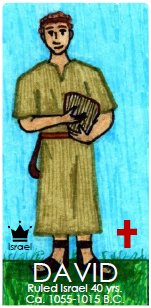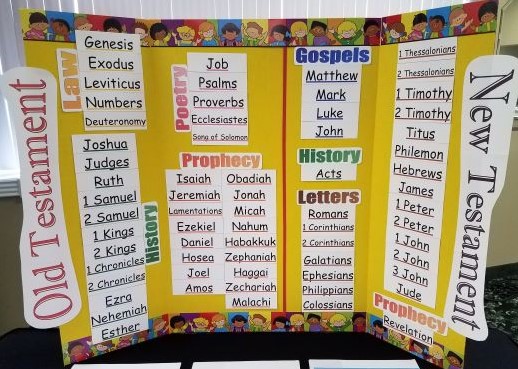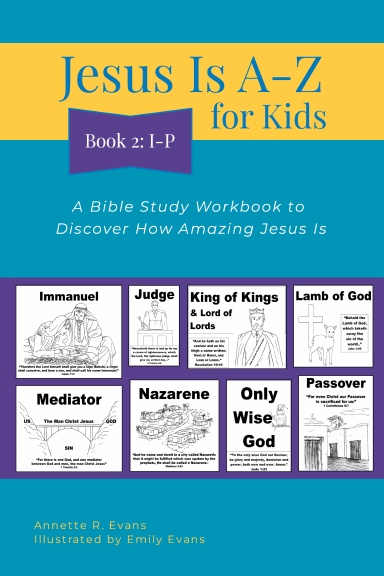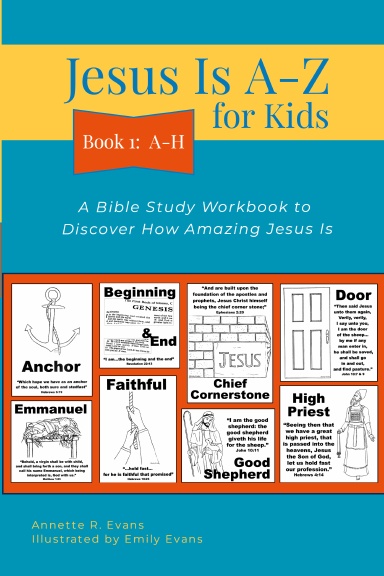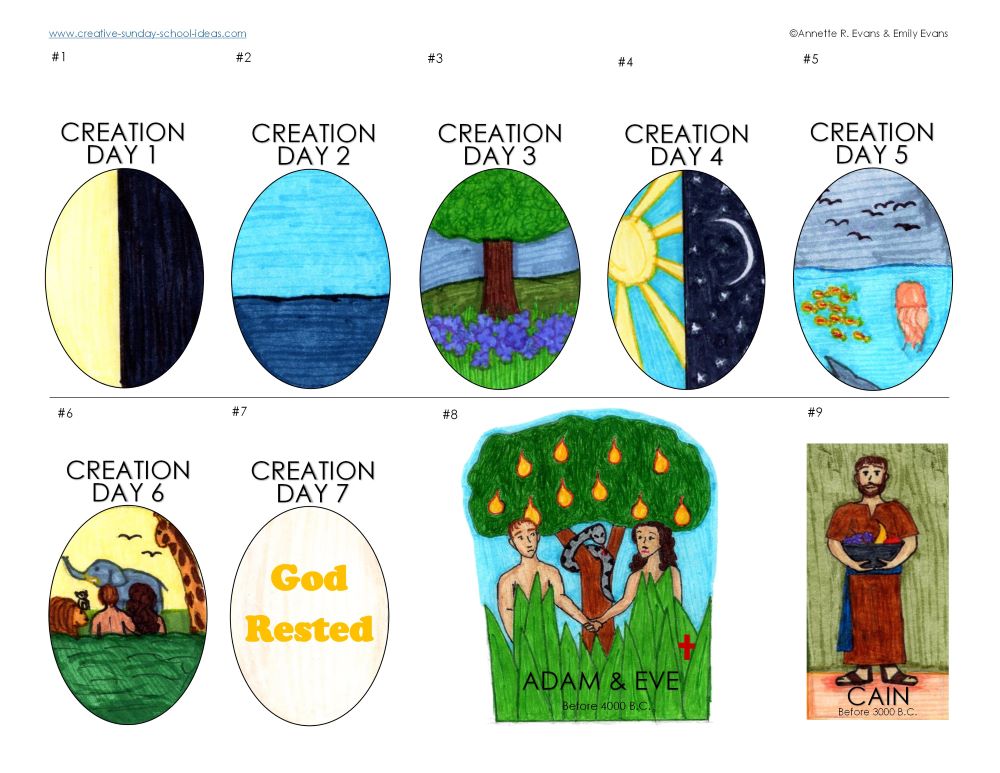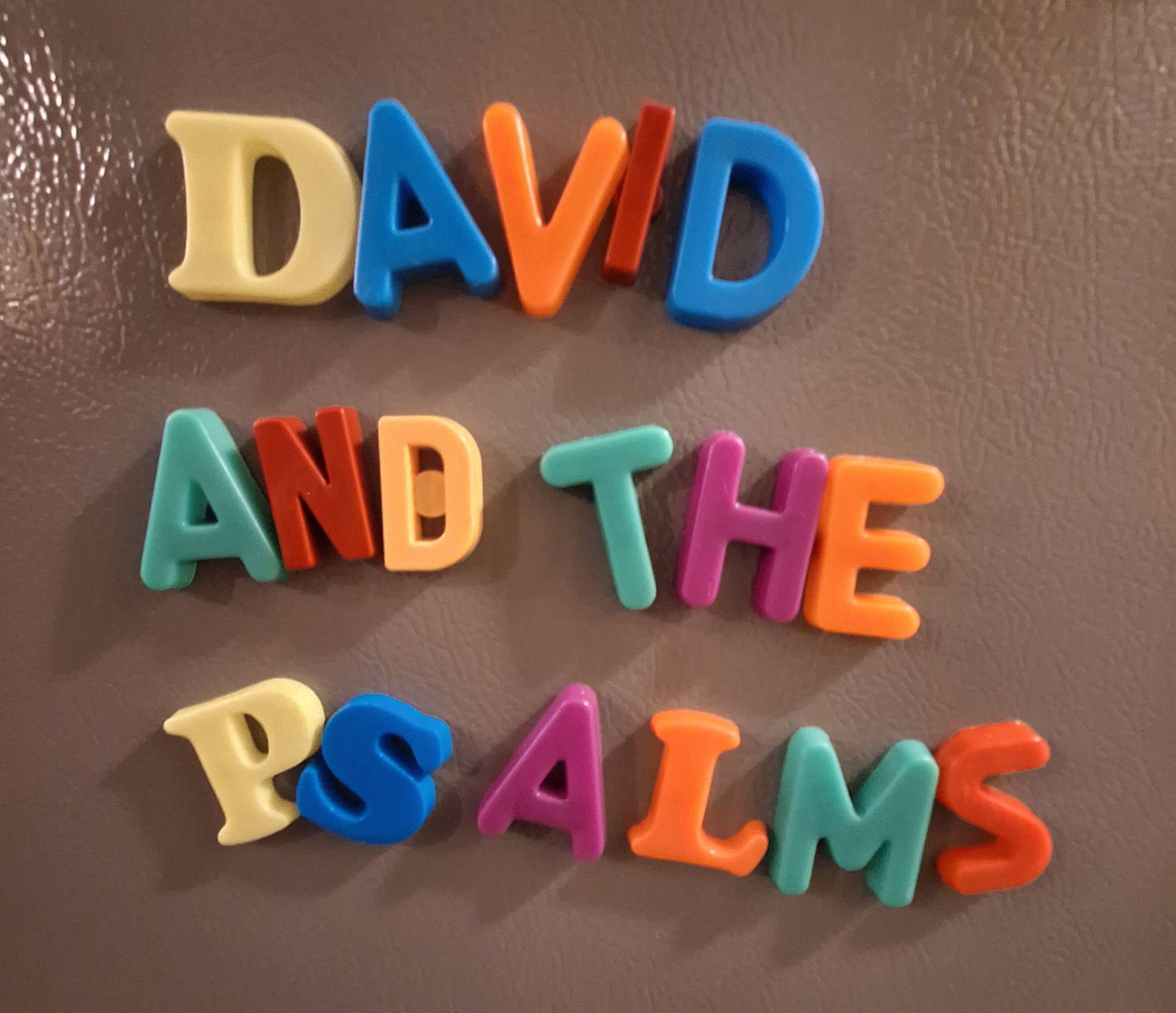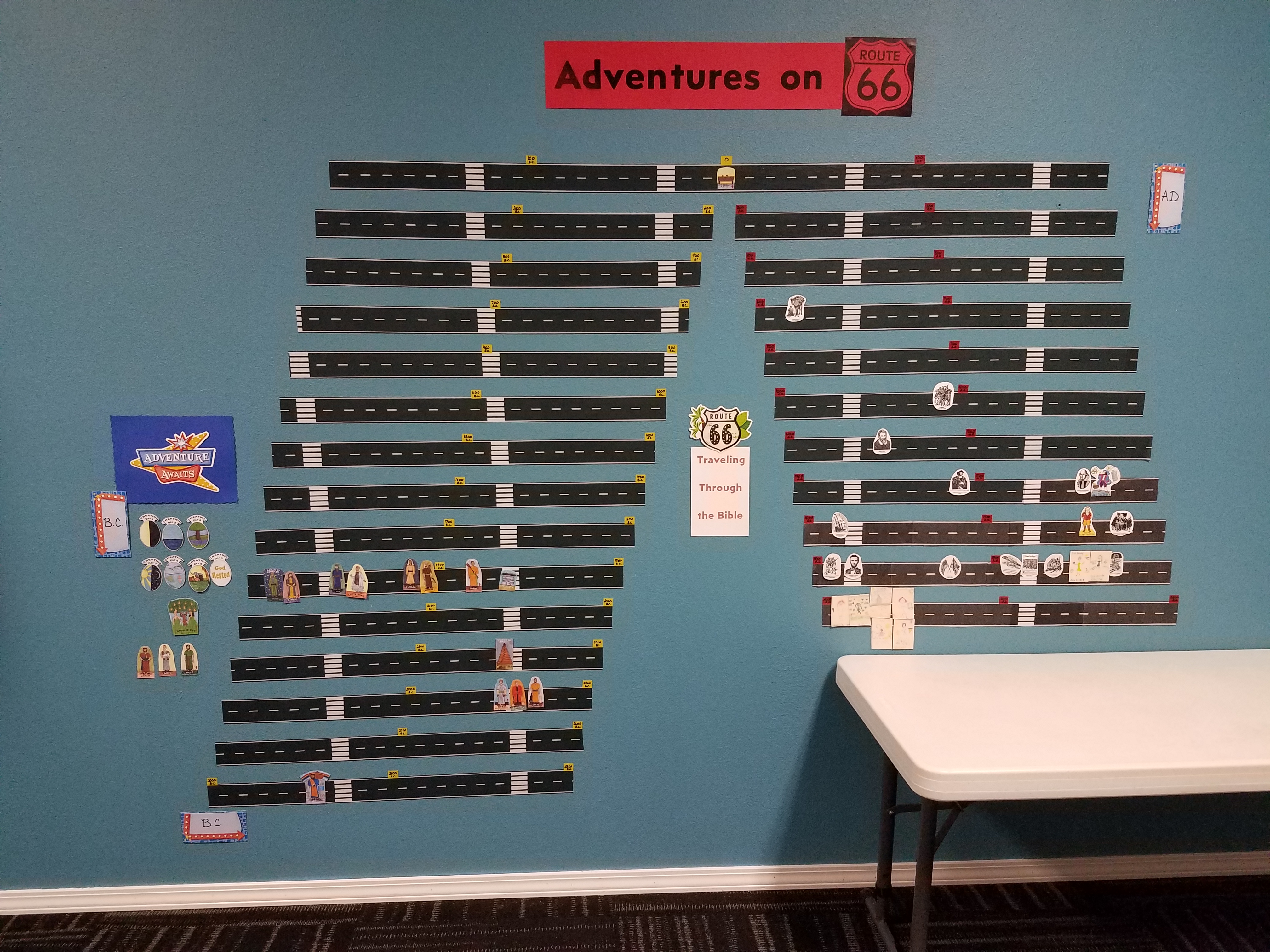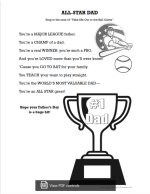David and the Psalms
Description: This David and the Psalms curriculum explores the life of David as a psalmist, shepherd, musician, soldier, friend, fugitive, king, sinner, repentant one, and more. The Psalms he wrote are tied to the events of his life.
Jump to lesson links at the bottom of the page.I wrote this curriculum during a period of in-depth study in the books of Poetry (Job, Psalms, Proverbs, Ecclesiastes, and Song of Solomon). I was seeking deeper comfort and strength from these books as I was going through a season of difficulty in my own life.
There is a lot of material in David’s life, and it was hard for me to let any of it go, so some of the lessons got a bit long. As I continue to teach the series, I may divide some lessons or hone them down. As always, teach these lessons in the way that works best for you and your students. Remember, when teaching the BIBLE LESSON, you can’t really go beyond about 20 minutes in length. At that point, you will lose the kids, and you want to make sure you still have them when it’s time to pray together in response to God’s Word.
Goal: Explore David’s life in detail, especially God’s trust in and love for him and David’s reciprocal trust and love as evidenced in the Psalms.
Organization: The lessons in the David & the Psalms curriculum are written to fill 1-1/2 to 2 hours and follow this basic schedule:
· 20-30 minutes Large-Group Memory Work
· 10-15 minutes Small-Group Memory Work
· 10 minutes Review
· 10-15 minutes Worship
· 5 minutes Rules & Prayer
· 20 minutes Bible Lesson
· 10 minutes Bible Skills
· 15 minutes Activity/Snack
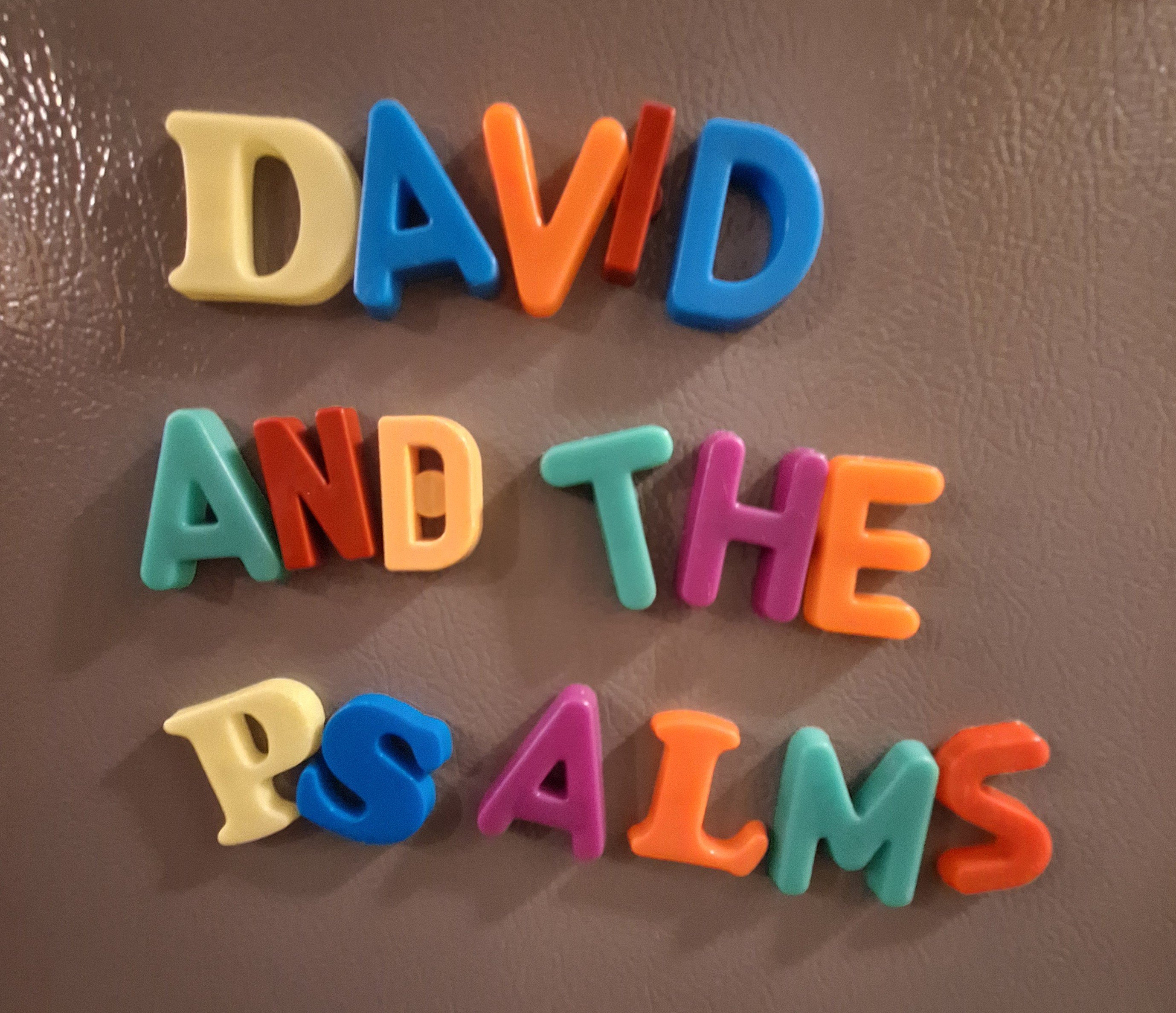
LARGE-GROUP MEMORY WORK
At the beginning of class, while students are gathering in, we use games, activities, and songs to work on learning and memorizing things together. In this series we put extra focus on musical activities and poetry as we explore the life of David and the Psalms he wrote. We work on memorizing Psalm 23 together.
Psalm 23 on 4x6 cards for games
SMALL-GROUP MEMORY WORK
During this time, we divide the class into smaller groups, a few students per teacher. We have each student work through a list of six verses at his/her own pace, quoting one at a time, then two at a time, etc., until ready to test on all six verses at once. Teachers assist students and help them stay on track, and students quote verses to teachers when they are ready. Our kids really enjoy this time of more individualized attention and interaction with the teachers.
We have charts (each student has a folder to keep his/her charts in) so that we can initial and date verses as kids quote them. We also note their scores when they test. Students receive 3 points if they quote a verse perfectly and 2 points if they need help starting the verse or make minor mistakes and don't self-correct. They must score at least 15 points to pass. When they do, they get to choose a prize out of the prize box.
My “Memorize Bible Verses” page has more information if you need ideas in this area. For example, there are links to charts (link) I made for our students to use when we study Jesus Is A-Z (link), as well as songs we sing to learn the verses.
REVIEW
Anything worth teaching is worth reviewing. We want our students to remember the things we have been learning, cumulatively, throughout the series and the year. We use questions taken from previous lessons, often incorporating them into a quick game to make REVIEW a fun and interactive time.
David and the Psalms Review Questions
WORSHIP
Sing several songs—some energetic, some calmly worshipful. Try to sing a Psalm or two every week. A good resource for worship songs with word-for-word Scripture (including lots of Psalms) is Seeds Kids Worship.
RULES & PRAYER
Have a basic list of about five rules (see example). Review these quickly and pray with the class to help the kids focus right before the BIBLE LESSON.
BIBLE LESSON
I generally write BIBLE LESSONS to be interactive. I like to ask a lot of questions (some open ended to invite discussion and some with specific answers) to keep the students interacting with the lesson. I also stress reading Scripture directly out of your Bible during the lesson, setting an example for the students. (They look up verses for themselves during the BIBLE SKILLS portion of the class, rather than during the BIBLE LESSON. This keeps the BIBLE LESSON moving along and yet gives students a chance to learn how to use their Bibles.)
This David and the Psalms curriculum, as compared with others I’ve written, contains much more narrative—telling the great stories from David’s life—and there wasn’t as much time for questions. I also worked to create a balance between telling the stories and reading certain parts straight from the Bible.
The BIBLE LESSONS are scripted with words you are to say in bold and suggested answers in italics. Highlighted words are actions you are to take. All BIBLE LESSONS end in prayer as it is so important to give the kids an opportunity to respond to the BIBLE LESSON.
BIBLE SKILLS
This is the portion of the class where kids get hands-on with the Bible, learning how it is organized and practicing looking up verses. We purchased a case of Bibles to have on hand in our classroom. However, students should be encouraged to bring theirs from home if possible. The goal is to become familiar with and learn to love your very own Bible! We use a Books of the Bible demonstration board to assist students during this portion of the class.
ACTIVITY/SNACK
The activities in this series focus heavily on music and poetry with snacks also served if desired.
David and the Psalms lesson plans:
- Psalm 23 to print on 4x6 cards for games
- Numbers 1-150 to print on 3x5 cards
- Cinquain Graphic Organizer
- Characteristics of Sheep
- Examples: Psalm 23 Songs
Lesson 4 – David Defeats Goliath in the Name of the Lord
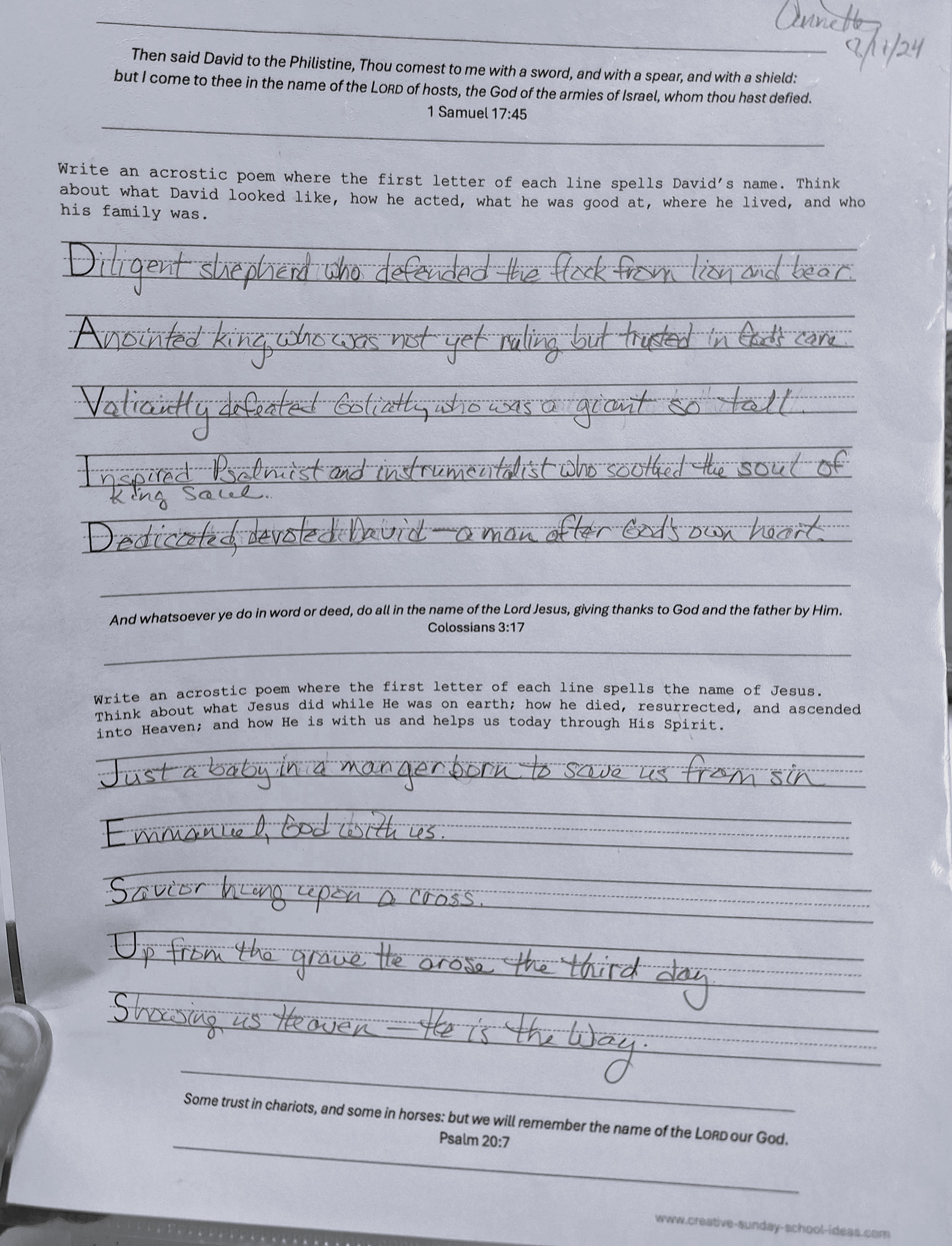
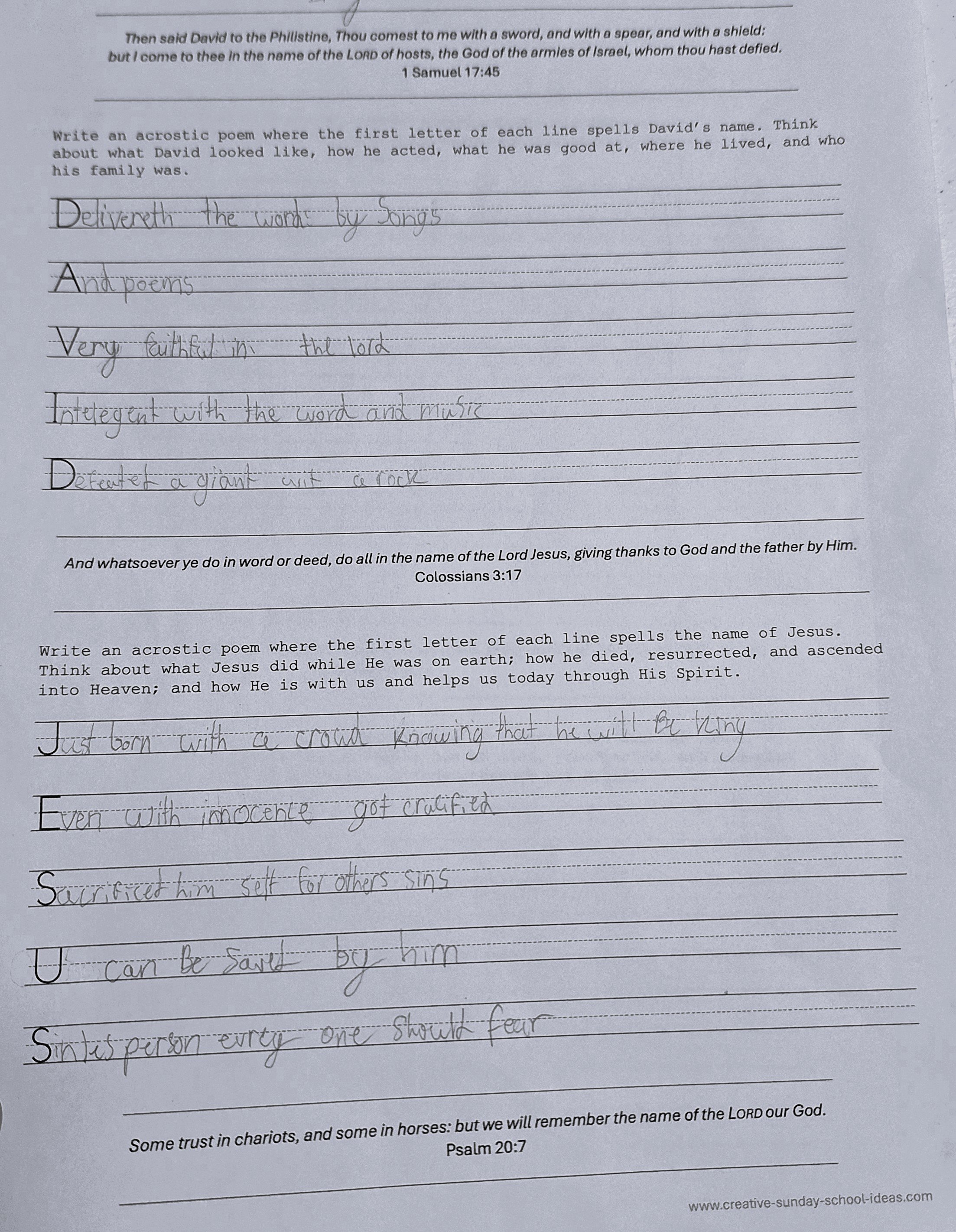
COMING SOON:
Lesson 5 – David and His Friend Jonathan
Lesson 6 – David on the Run
Lesson 7 – David Is Still on the Run
Lesson 7b – Halfway Review Lesson
Lesson 8 – David Recovers What was Taken, Mourns Saul & Jonathan
Lesson 9 – David is Finally King
Lesson 10 – David’s Kingdom Is Established
Lesson 11 – David’s Terrible Sins & His Repentance
Lesson 12 – A Sword in the House of David
Lesson 13 – David’s Later Years & Death
David & the Psalms Review Questions
- Subscribe to "Annette's Notes" to receive periodic emails containing ideas and inspiration for teaching kids the Bible. Rest assured we will never sell or give away your email address.
